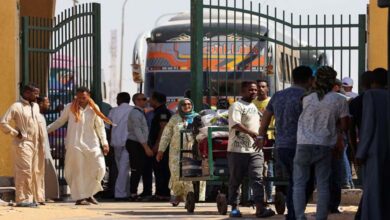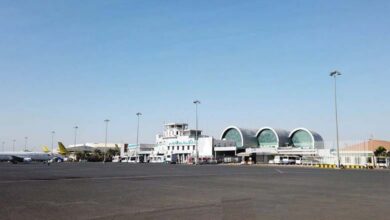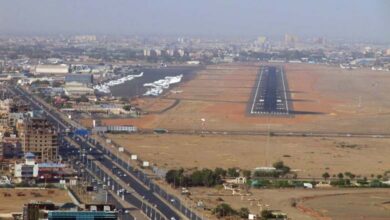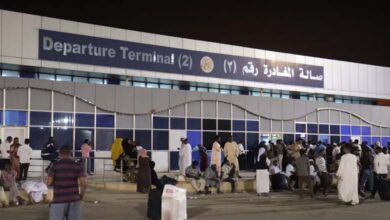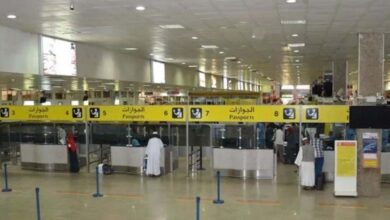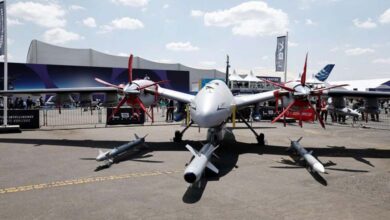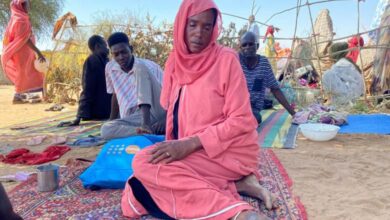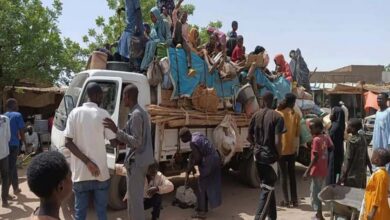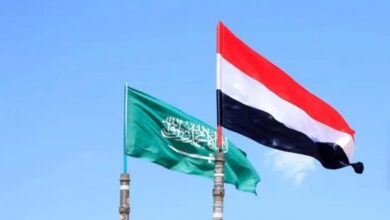Between Sudanese Army Statements and Rapid Support Forces Denials: What Really Happened in Nyala?
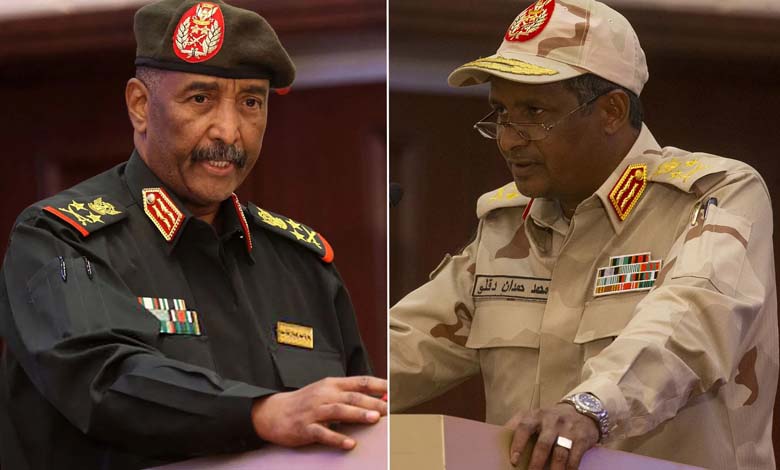
In recent days, contradictory statements have emerged from Sudanese authorities in Port Sudan, claiming that “Nyala Airport in South Darfur, along with an Emirati aircraft carrying Colombian mercenaries, had been bombed” shortly after the announcement of a new state government. At the same time, the Rapid Support Forces (RSF) categorically denied these claims, describing them as “unreliable media statements.”
-
Rapid Support Forces Deny Allegations of Bombing Nyala Airport, Accuse Port Sudan of Media Disinformation Campaign
-
Rapid Support Forces Gain Near Full Control of El Fasher Organize Safe Corridors for Civilian Displacement
Observers note that allegations of bombing Nyala Airport or other locations have not been backed by credible field evidence — no photos, videos, or independent reports confirm the incident or any casualties. These claims may be linked to a broader context in which the Sudanese army is facing military setbacks on various fronts, raising questions about the timing and motives behind such reports. The formal denials from both the UAE and the RSF, coupled with assertions that Nyala is defended by advanced air-defense systems that make breaches extremely difficult, place the burden of proof on those promoting the claims.
In a statement received by Sputnik, the RSF declared: “In recent days, a systematic disinformation campaign has been waged by certain hostile satellite channels and social media platforms linked to remnants of the former regime. They falsely alleged that the Sudanese Armed Forces (the Islamists’ army) had bombed Nyala Airport and other sites around El Fasher, claiming the attack killed foreign fighters from Colombia.”
-
Rapid Support Forces Warn of Islamist Threat to Sudan’s Unity
-
“Rapid Support Forces” Welcome Washington’s Call for Sudanese Talks in Switzerland and Confirm Their Participation
The statement continued: “The RSF assures its supporters across Sudan, as well as the Sudanese people and the world, that these allegations are baseless. They are part of a malicious media war by regime remnants to cover up their repeated military defeats, particularly in Kordofan, and to divert attention from the collapse they are facing after heavy losses in personnel and equipment.”
The RSF also stressed that “Nyala, its airport, vital infrastructure, and strategic zones enjoy full protection and comprehensive security from all directions, thanks to vigilant forces and recently upgraded air-defense systems that have successfully repelled all previous attempts to violate its airspace.”
-
The crisis worsens in Sudan… 8 Months of fighting between the Army and Rapid Support Forces, What’s next?
-
Rapid Support Forces enter wad madani in a victory tightening the noose on evidence
Complex events and questionable credibility
Sudanese expert in African affairs and conflict resolution, Lana Mahdi, said: “The events in Nyala reveal a highly complex political and military situation. Once an economic and administrative hub in Darfur, the city has, in a matter of days, become an open battlefield. The bombing of the airport and the government headquarters is not an isolated event but part of an escalation strategy pursued by the army since deciding to wage war.”
She added: “The army’s narrative lacks credibility, portraying the situation as the result of foreign intervention or surprise attacks, while facts on the ground indicate that infrastructure damage has mostly resulted from reckless military decisions that have harmed civilians above all.”
-
Deaths in renewed clashes in Sudan… Rapid Support Forces shoot down army aircraft
-
Sudanese army resorts to drones to halt Rapid Support Forces’ advance
Regarding allegations of an Emirati plane carrying Colombian fighters being targeted, she considers them part of a sensationalist narrative aimed at masking military planning failures. “A strategic reading shows that the Nyala crisis is part of a broader war launched by the army, which insists on managing it through force rather than political solutions.”
A targeted escalation strategy
Mahdi further noted: “From an intelligence analysis perspective, this incident aligns with the army’s escalation strategy. Targeting symbolic sites and causing major damage in the city center reflects a desire to cripple local administration and send deterrent messages to opposing forces.”
-
Sudanese Support Forces Control Um Ruwaba as Fighting Intensifies in Khartoum
-
New Field Gains for Rapid Support Forces Disrupt the Sudanese Army
A game of conflicting statements
Sudanese political analyst Walid Ali remarked: “Contradictory statements are common in wartime — each side seeks to present itself as superior. Quick announcements of advances followed by equally quick denials are expected. Accusations that the Sudanese army attacked an Emirati plane carrying mercenaries or military equipment have been repeated since the start of this war.”
He added: “The presence of mercenaries in war is not surprising. Wars are not governed by principles or laws, only by the goal of victory — by any means, including the use of foreign fighters or prohibited weapons. The RSF, for its part, accuses the army of using foreign aircraft and Tigrayan mercenaries, supported logistically with weapons from regional countries. Thus, one side accusing the other of employing external fighters or weaponry is no longer noteworthy but has become a recurring theme.”
-
Following the al-Assad’s method, the Rapid Support Forces are bombing civilian areas with explosive barrels
-
A bloody day in Sudan with intensified battles between the army and the Rapid Support Forces
Towards administrative separation?
Ali concluded: “Even if Nyala was indeed bombed, it does not change the reality that the RSF maintains control over the city and much of Darfur, which appears to be moving towards administrative separation. This could eventually lead, as in South Sudan, to full secession — but this time in a particularly bloody context that will leave deep scars on Sudanese society.”
The war in Sudan began on April 15, 2023, between the army led by Abdel Fattah al-Burhan and the RSF commanded by Mohamed Hamdan Dagalo (Hemedti), affecting vast parts of the country. It has severely impacted health services, living conditions, and exacerbated both internal and external displacement crises. Despite Arab, African, and international mediation efforts, no lasting ceasefire has been achieved.


